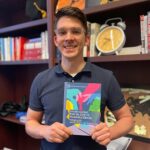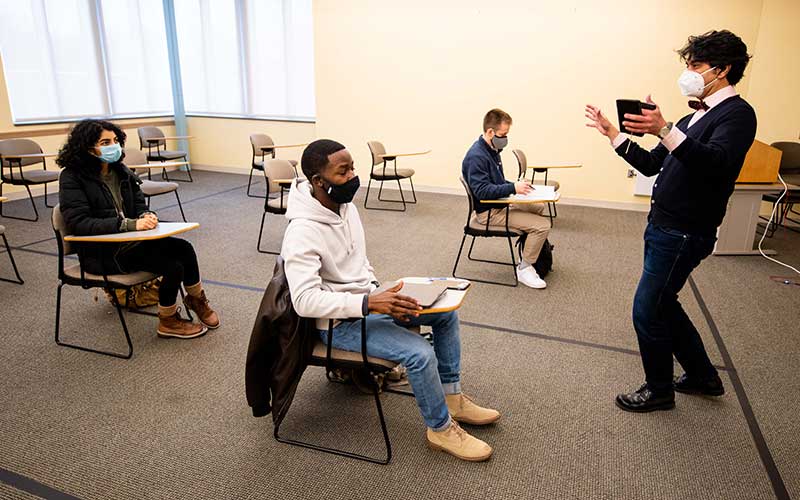
Economics Major reclassified as a STEM program expands opportunities for international graduates

Students who graduate with an economics major from The College of Wooster can now count themselves as STEM majors. The new classification—with science, technology, engineering, and math components—follows a national trend that offers international students more opportunities to work in the U.S. after they graduate.
The US Department of Education (DOE) groups majors within a Classification of Instructional Programs (CIP) code. The CIP code that corresponds to the economics major has a STEM designation for an instructional program that provides instruction in “economic statistics, optimization, price theory, and economic modeling.” As Wooster has a long history of offering instruction in these areas, the economics department requested the change, and it was approved at the beginning of this fall 2021 semester.
Philip Mellizo, chair of the economics department and associate professor, informed students in a September Open House about the change. He emphasized that course requirements for students would remain the same as before. “We have always required advanced training in econometric methods for all our students,” he said. The only change is the economics major will be recorded as a STEM major with the U.S. Government.
“Our program has had strong quantitative training since the 1980s, but the STEM designation did not exist then,” said Mellizo. “The increasing use of the STEM extension recently encouraged us to undertake this curriculum mapping process.”
The new classification may have implications for the academic plans of some students, particularly the 40% of economics majors who are also international students (as of Sept. 1, 2021). Students with an F-1 Visa without a STEM degree are only eligible for one year of Optional Practical Training (OPT) to be employed in the United States after graduation. However, with the new major classification, they will be able to apply for a STEM extension to earn up to three years of OPT.
“One of the challenges was that US companies were not willing to consider international students for employment, even though they were legally allowed to work for one year, because of the short time frame,” said Brooke Krause, assistant professor of economics & business economics. “This is a solution that will expand opportunities post-graduation for our majors as well as support recruitment efforts.”
This STEM classification gives international students a better chance of finding a job and staying in the U.S. longer. In fact, Krause added that employers are now explicitly asking for the STEM extension. Regardless of international status, students may even be eligible to apply for scholarships or financial aid designated for STEM majors.
The conversation about reclassifying the economics major started as early as 2017 when Krause and Amyaz Moledina, associate professor of economics & business economics, met with International Student and Scholar Services.
In fall 2019, the department applied for and was awarded a GLCA (Great Lakes Colleges Association) internationalization grant. Under the Internationalization Innovation Fund, this grant provides support for a campus to advance its goals to internationalize the programs of learning that define an undergraduates’ experience of the liberal arts.
“We conducted the work for this grant in spring 2020 and in the 2020-21 academic year,” said Moledina. “During that time, we gathered information about other similar schools who made this CIP change, and we wrote the proposal to officially reclassify the major at Wooster. This was an internal process with eventual reporting to the DOE.”
Prior to the reclassification, Wooster grads have had both OPT and Curricular Practical Training (CPT) experiences in a wide range of industries from research assistant positions at academic institutions, pre-doctoral programs, development programs in finance, and nonprofit organizations.
“Our department takes inclusion seriously and this is one small way in which we support our international students,” said Mellizo. “They have complex identities that require an intersectional approach, and so this is just a small part of our overall strategy to support inclusion in the department.”
Posted in News on November 8, 2021.
Related Posts
Related Areas of Study
Economics
Learn how humans organize to sustain life and enhance its quality from a diversity of economic perspectives
Major Minor

